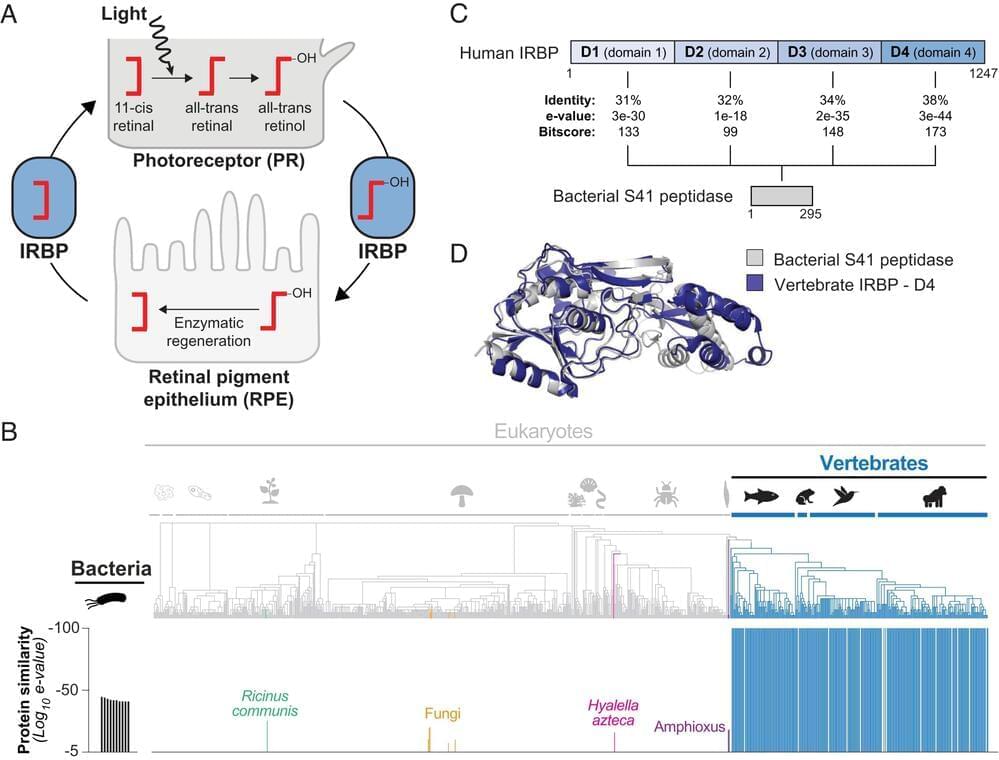A group of molecular and chemical biologists at the University of California, San Diego, has found possible evidence of interdomain horizontal gene transfer leading to the development of the eye in vertebrates. In their study, reported in Proceedings of the National Academy of Sciences, Chinmay Kalluraya, Alexander Weitzel, Brian Tsu and Matthew Daugherty used the IQ-TREE software program to trace the evolutionary history of genes associated with vision.
Ever since scientists proved that humans, along with other animals, developed due to evolutionary processes, one problem has stood out—how could evolution possibly account for the development of something as complicated as the eyeball? Even Charles Darwin was said to be stumped by the question. In recent times, this seeming conundrum has been used by some groups as a means to discredit evolutionary theory altogether. In this new effort, the team in California sought to answer the question once and for all.
Their work began with the idea that vision in vertebrates may have got its start by using light-sensitive genes transferred from microbes. To find out if that might be the case, the team submitted likely human gene candidates to the IQ-TREE program to look for similar genetic sequences in other creatures, most specifically, microbes.









Comments are closed.